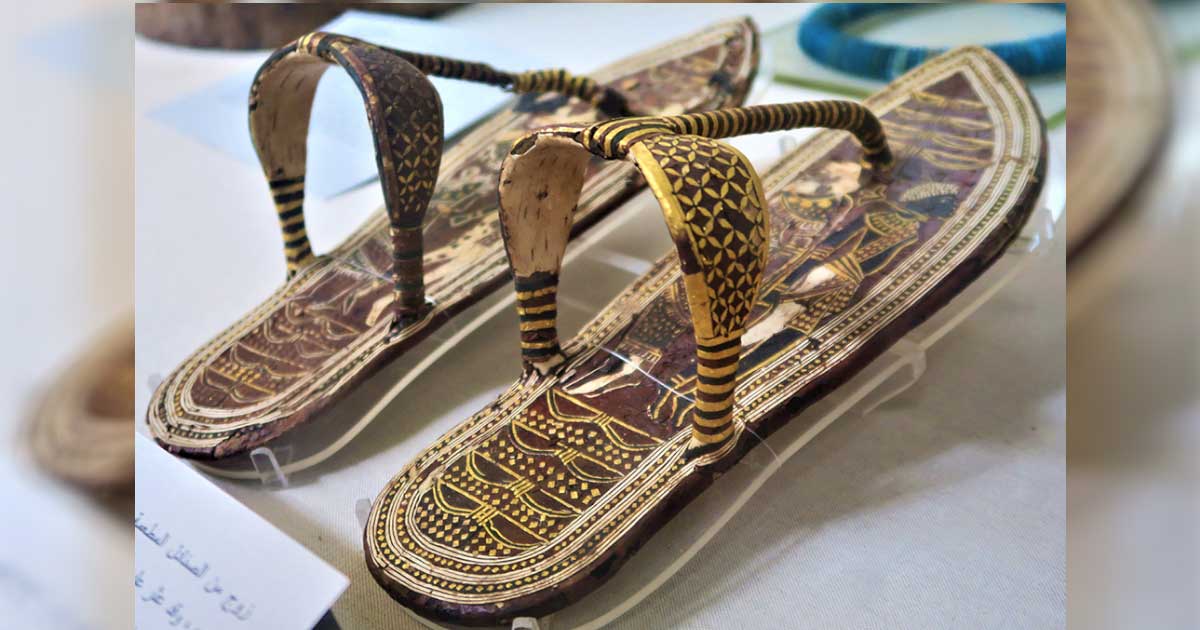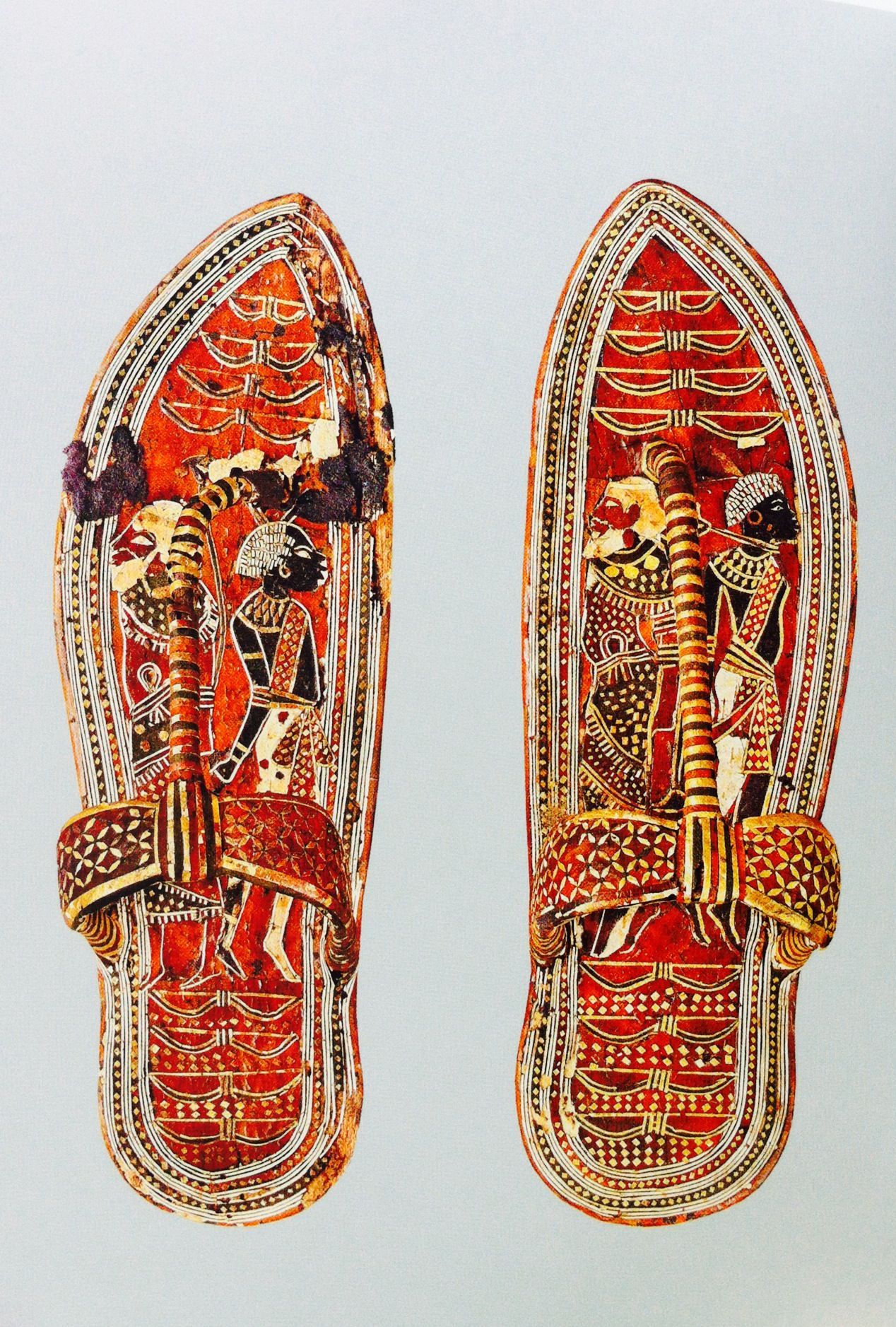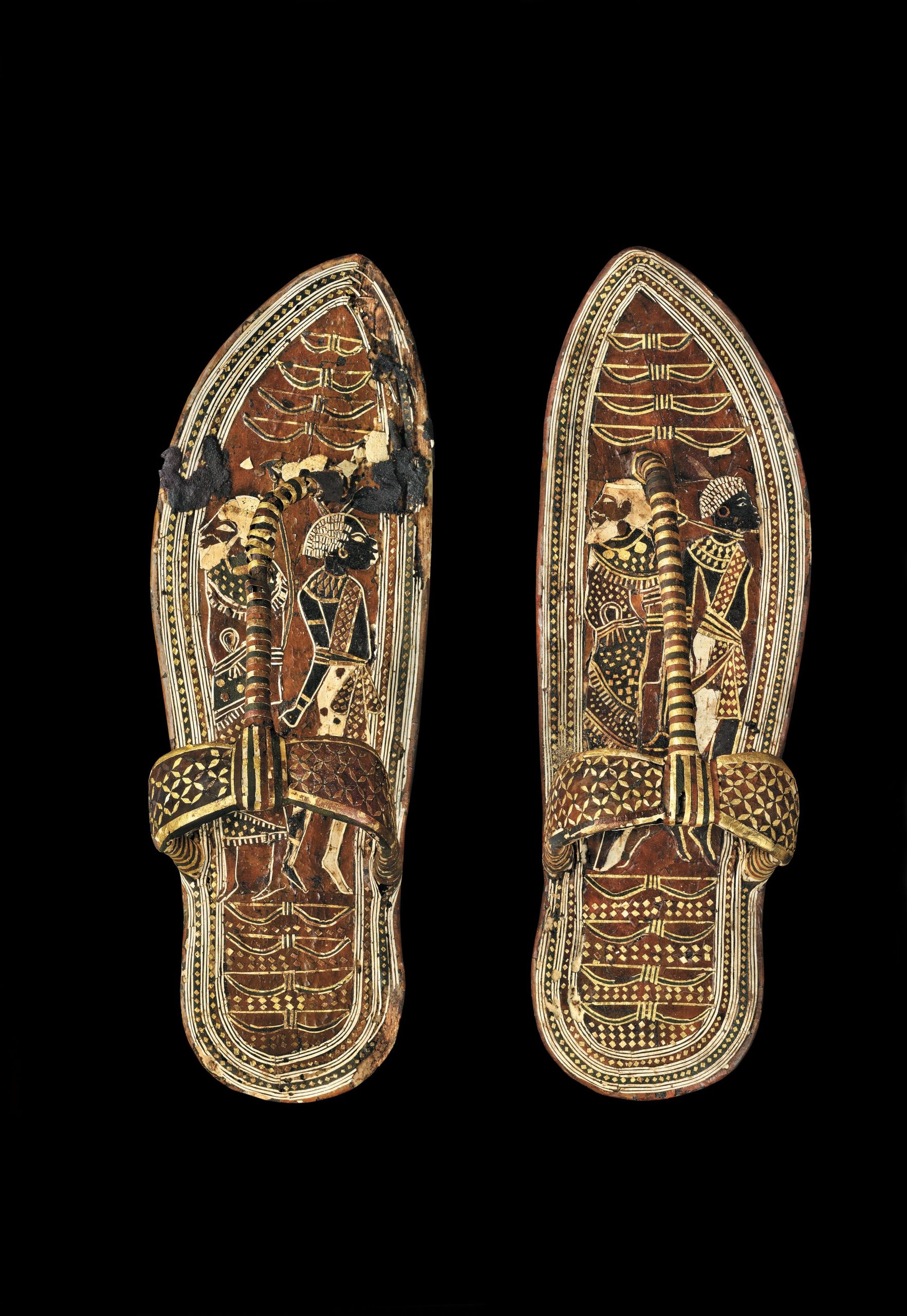The Symbolic Sandals of Tutankhamun
The sandals of Tutankhamun are a remarkable artifact that extend beyond their practical use, offering a fascinating glimpse into the symbolism of royal power in ancient Egypt. Discovered in the tomb of the young pharaoh, these leather sandals are adorned with intricate depictions of Egypt’s enemies, such as Nubians and Asiatics. These images are not simply decorative; they embody a deliberate statement of authority. By stepping on these representations of foreign adversaries, Tutankhamun symbolically “trampled” them, asserting his dominance over the nations and peoples that posed a threat to his reign. This act of trampling his enemies underfoot was a visual manifestation of his power, aligning with the divine right of kings and the notion that the pharaoh was the earthly representative of the gods.

Craftsmanship and Symbolism
Beyond their political message, the craftsmanship of the sandals is extraordinary. The use of gilding and detailed ornamentation reflects the high status and luxurious lifestyle of Tutankhamun. These sandals are not simply utilitarian objects, but fine examples of the artistry of ancient Egyptian craftsmen. Their creation showcases the remarkable skill of artisans who were able to turn everyday items into objects of cultural significance. The gilded features of the sandals, along with the finely crafted leather, speak to the wealth and grandeur of the pharaoh’s court.

Art, Politics, and the Divine Right of Kings
Artifacts such as these sandals provide valuable insights into the intersection of art, politics, and religion in ancient Egypt. In this context, material culture was used as a form of political propaganda. The sandals are a vivid reminder that the art of ancient Egypt was not just about beauty or utility—it was also about reinforcing the power and divine legitimacy of the pharaoh. By wearing these sandals, Tutankhamun effectively conveyed his authority over his enemies, both foreign and internal. His mastery was not just physical, but symbolic, with every aspect of his rule depicted in the objects surrounding him.

Today, the sandals serve as a powerful reminder of the role material culture played in reinforcing political and religious ideologies. They highlight how even the most everyday objects could be transformed into powerful symbols of royal authority, making them key to understanding the political landscape of ancient Egypt.

